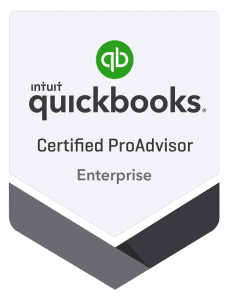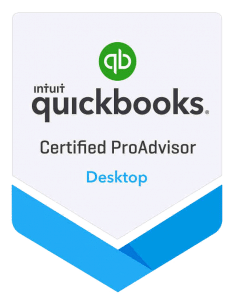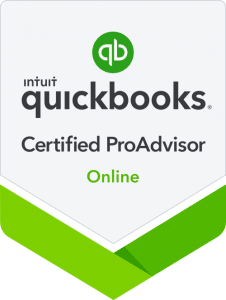More business owners are starting to shift from traditional office-based systems to more flexible setups, and that includes how they handle their finances. Remote bookkeeping is becoming a go-to solution for businesses that want to cut down the clutter, stop drowning in spreadsheets, and stay ahead of the curve. It offers the freedom to monitor your books from anywhere with an internet connection, giving you the tools to stay organized without being tied to a desk.
This kind of setup can make a real difference for small business owners who want more time to grow their company instead of balancing numbers. Remote bookkeeping can help you make smarter choices by providing clearer, more timely financial information. It’s not just about convenience. It’s about giving yourself the chance to lead your business without constantly being dragged into paperwork and payroll.
What Are Remote Bookkeeping Services?
Remote bookkeeping takes the functions of a traditional bookkeeper like recording transactions, tracking expenses, and preparing financial summaries, and delivers those services online. Instead of having someone sit in your office to handle the books, you send your financial information digitally to a trained professional who manages everything remotely. That could be daily transaction logs, receipts, payroll summaries, or monthly statements.
Here’s how it works. Most remote bookkeepers use cloud accounting software, so you and your bookkeeper always have access to the same real-time numbers. Phone calls, emails, and video meetings often replace face-to-face visits. Some systems can even automatically import bank transactions, categorize expenses, and reconcile accounts with a few clicks. This makes it faster and more reliable to keep everything up to date.
Remote bookkeeping services typically include:
– Daily or weekly transaction recording
– Accounts payable and receivable tracking
– Payroll processing
– Bank account reconciliation
– Financial report generation
– Tax document preparation
The main difference between remote and traditional bookkeeping is location, but that one change affects everything from how you send receipts to when you view reports. If you’ve ever had a drawer full of crumpled receipts or missed a tax deadline, you know how fast paperwork can become a problem. With a remote setup, that stress drops significantly, and staying organized becomes the standard.
Benefits Of Remote Bookkeeping For Businesses
Making the switch to remote bookkeeping can help clear up more than just paper files. There are day-to-day and long-term advantages that help businesses work smarter without sacrificing control. Whether you’re a solo entrepreneur or have a growing team, it can give you both room to focus and a better view of where your money’s going.
1. Cost Savings
You won’t need office space for a full-time bookkeeper, and you can adjust services based on your needs. For small businesses working within tight budgets, this can really make a difference.
2. Flexibility and Access
You don’t have to wait until Monday morning to check your finances. With cloud-based tools, you’re one login away from current numbers, whether you’re at your desk or on your couch.
3. Expert Help on Call
You’re not limited to local staffing. Remote bookkeeping gives you access to professionals who specialize in the software and services you already use. That usually means cleaner books and fewer mistakes.
For example, if you run a small retail business, your busiest times are likely during the holidays or weekends. Having a remote bookkeeper means that while you’re assisting customers and ringing up sales, someone else is handling payouts, logging transactions, and keeping everything accurate. That frees up your time and lifts some mental weight off your shoulders.
How Remote Bookkeeping Enhances Efficiency
Switching to remote bookkeeping gives your business a serious efficiency boost. The tools and systems involved are designed to streamline how money is tracked and managed. Automation plays a big part in that. These systems can handle tasks like entering transactions and reconciling accounts without anyone needing to do it manually.
Real-time data entry keeps everything current, so you’re always working with the newest numbers. This reduces the chances of making a mistake that could throw off your records or tax filings. When your software automatically imports banking data or flags duplicate entries, you eliminate common problems before they slow you down.
Let’s say the system matches a bank transaction with the right invoice with no effort from you. That not only saves time but helps prevent errors that could mean extra charges or delays. Virtual dashboards let you check trends, spot strange activity, and make faster decisions without shuffling through paperwork.
Choosing The Right Remote Bookkeeping Provider
Finding a provider that fits your specific needs is an important part of making remote bookkeeping work for your business. Not all bookkeepers offer the same services or level of support, so it’s smart to ask the right questions up front.
Here are a few things to look for:
– Experience with businesses similar to yours
– Familiarity with cloud software like QuickBooks
– Solid communication methods and schedules
– Scalability to keep up as your business grows
You should also ask:
– What types of accounting software and tools do you use?
– How do you ensure the safety and privacy of my data?
– How often will we review financial updates together?
– Can your services grow as my company gets bigger?
Personalized support is just as important as the tech side. A provider who understands your line of work is more likely to catch the details that matter and offer solutions that actually make a difference. You don’t want a one-size-fits-all answer. You want someone who knows your challenges and works with you to solve them.
Take Your Business To The Next Level
Remote bookkeeping is more than just a modern convenience. It’s a smarter way to run your business. When financial tasks are handled by professionals who use up-to-date tools, you get time back to focus on the big picture.
You don’t have to spend your evenings sorting receipts or wondering if payroll went through. With the right remote bookkeeper, you’re tapping into a system that keeps things running smoothly behind the scenes. That gives you space to grow your business with fewer worries about the details.
Whether you’re looking for flexibility, clear financial insights, or more bandwidth to focus on your goals, shifting to remote bookkeeping can help make that happen. Cloud Bookkeeping offers the experience and tools needed to support your growth, so you get the benefits of expert help without the overhead.
FAQs
How secure is my financial data with remote bookkeeping services?
Your data is protected using strong encryption and strict security practices. Bookkeepers take confidentiality seriously to keep your information safe.
Can remote bookkeeping services integrate with my existing software?
Yes, most remote services are built to connect smoothly with tools like QuickBooks. This makes the switch simple and keeps your records consistent.
What kind of businesses benefit most from remote bookkeeping?
Small businesses, startups, and any company that needs flexible access to its books benefit the most. Remote access and expert help make a big difference.
How often will I receive financial reports from a remote bookkeeping service?
You can pick the schedule that works best for you. Weekly, monthly, or quarterly reports are typical, depending on what you want to track.
Is remote bookkeeping scalable as my business grows?
Definitely. As your business expands, remote bookkeeping services can expand too. More transactions, more complex reporting—it’s all manageable with the right setup.
Ready to simplify your finances and free up more time to focus on your business goals? Learn how your operations can benefit from bookkeeping services in San Antonio that offer flexibility, accuracy, and support. At Cloud Bookkeeping, we’re here to help you stay organized and ahead of the curve.






